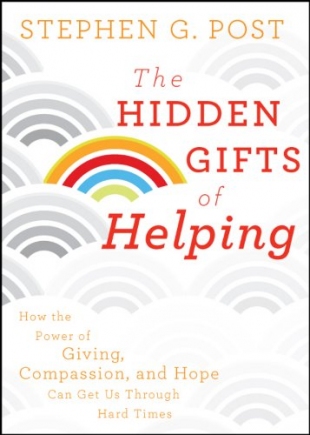Stephen G. Post is professor of preventive medicine and director of the Center for Medical Humanities, Compassionate Care, and Bioethics at Stony Brook University. He is president of the Institute for Research on Unlimited Love, established in 2001 with support of the philanthropist John Templeton and the Templeton Foundation. Post is the author of several books including Why Good Things Happen to Good People.
In this new uplifting work, the author uses his family's move from Ohio to their new home in New York as a way of illustrating the many ways in which transition, change, and mystery can signal a breakthrough to new possibilities. Post also sees the book as an exploration of the many benefits of helping others or, as he puts it, "a true companion and guide to the power of giving, forgiving, and compassion in hard times."
After living in Cleveland for 20 years, the author found it hard to adjust to a new place and unfamiliar people: he is overwhelmed by a sense of displacement and loss. But in the long term he learns that the ties of affection, good neighbors, and love itself are what constitute happiness. Post recovers his equilibrium by helping others. In a survey by the Institute for Research on Unlimited Love, he discovers that people reap many rewards from doing good including greater longevity, lower rates of heart disease, improved mental and emotional health, and relief of stress and negative emotions. Volunteers who regularly serve others talk of a "helper's high" that comes with moving beyond self and putting others first. Post quotes John Templeton: "Every act of helping is a way of saying yes to life."
The challenge of service is to discover your hidden gift and then to give to those who need it most. It could be serving food to the homeless, or supporting a shelter for abused women, or regularly visiting shut-ins. Post believes that happiness arises from four elements that create a spiritual foundation: loving others, the presence of moral integrity, the ability to enjoy thankful simplicity, and staying true to your higher purpose. The author concludes with a strong affirmation of the art of hanging on to hope in these hard times:
"Hope is not simply the capacity to be optimistic; it is so much bigger than that. Hope leads us into the future with a deep trust that something good will come. It helps us keep going when we stumble, and gives us a vision to guide us in the face of adversity."
